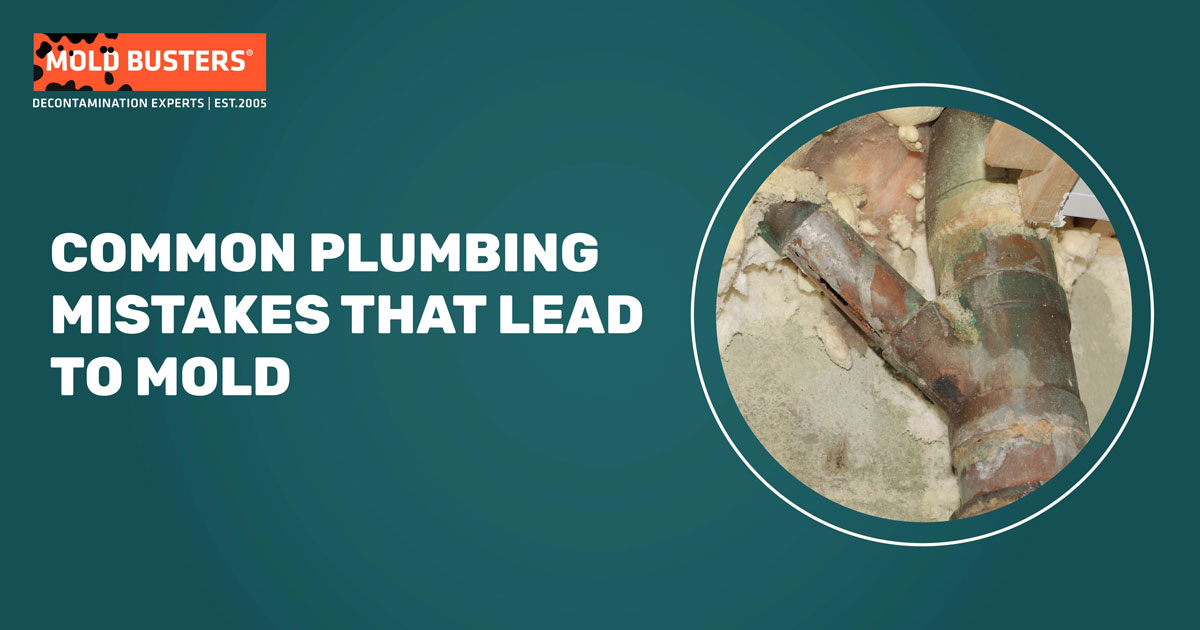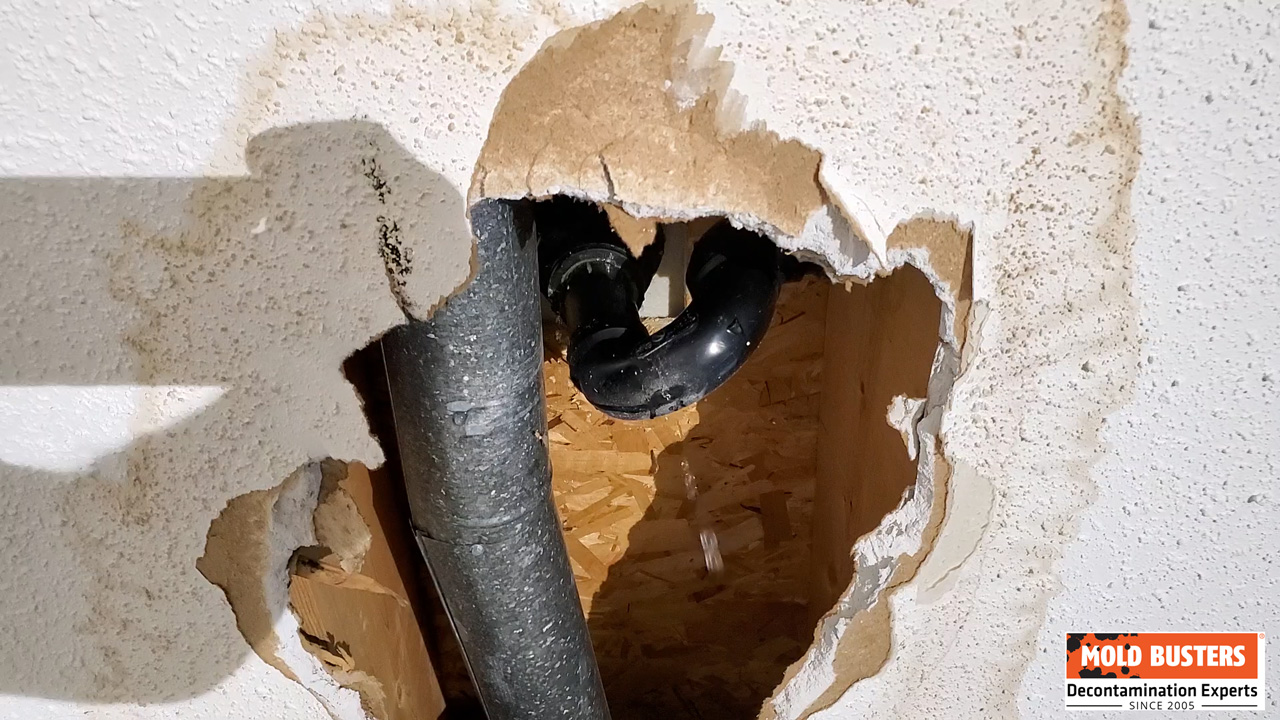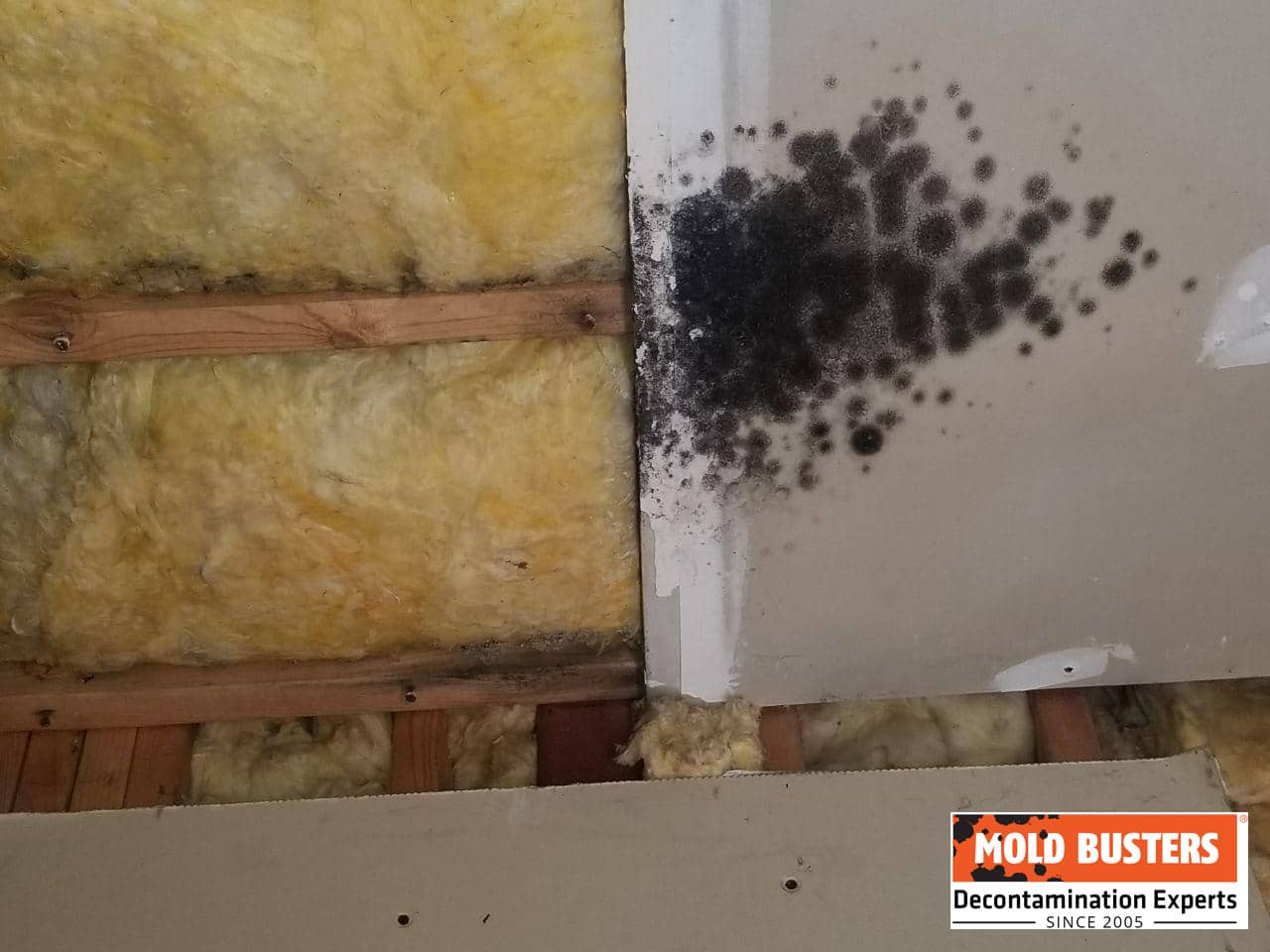Common Plumbing Mistakes That Lead To Mold
Comments 0 | 2020 Aug 27 | Author John Ward
Plumbing mistakes happen. Whether you’re a DIY weekend warrior or you hired a licensed plumber, there’s always a possibility something went wrong. Plumbing mistakes can spread like a virus… Or perhaps like a mold? A mistake in your pipes can lead to mold in your home, in your air, and in your lungs. When it comes to plumbing, do it once and do it right. Shortcuts and shortchanging can lead to serious health concerns.
Common Plumbing Problems

- Leaky work. A new faucet, toilet, drain, valve, or whatever can leak if not installed properly. For so many reasons, water is a tricky substance. It’ll find plumbing mistakes, and it’ll make em’ squeal. Combine a simple mistake with the pressure contained within your pipes, and you’re asking for trouble. The problem, however, is that these leaks can be slow to reveal themselves and leak slowly in general. You might test out your new faucet to satisfaction and place everything back under the sink before the leak presents itself.Unfortunately, there’s no plumbing drain for the stagnant water that pools in your cupboard, or leaks underneath the cupboard and into the floor. People find the boxes in their basement storage soaked and ruined all the time because of a leak upstairs. If you aren’t diligent and you don’t react swiftly, mold will begin to grow at the water damaged sites. If you’re in the Montreal or Ottawa area, our teams are ready to assist you with comprehensive mold inspection and removal services.
- Drain clogs and sewer blockages. Your home has a plumbing system to take water into your home and a plumbing system to remove it. The drains in your home lead to the main drain which connects to a sewer system. It’s not uncommon for the main drain of your home to clog. There’s a ton of reasons why this will happen and there’s a good chance you’ll need a plumber. Once fixed, there’s a chance that water has soaked into the house and belongings. Moisture in a basement with little or no air circulation is a recipe for mold.
- Sump pump issues.An enormous population of homes has sump pumps. Sump pumps keep water in the soil from pooling in the basement. Sump pumps, however, don’t last forever. They should be replaced every 7-10 years. If you choose not to replace a sump pump when it’s due, then it’s a ticking time bomb. It won’t explode, but it will eventually fail. When the sump pump fails, your basement will flood the next time the ground is wet. This water will soak into whatever it can and become the promised land for mold. Remember to replace your sump pump, and consider having a battery backup sump pump in case of a power outage or your primary sump pump fails.
Concerned About Mold from Plumbing Issues? Get a Free Inspection!
Plumbing mistakes can lead to serious mold problems. Don’t let hidden leaks and moisture issues go unchecked! Contact Mold Busters for a free virtual mold inspection. Our experts will provide a thorough assessment and plan to keep your home safe and mold-free. Act now to protect your health and property!
Some Advice From A Plumber:

- If you don’t know what you’re doing when it comes to plumbing, you either have got to put in the time and learn or hire a professional plumber. Plumbing shortcuts cost you big time in the long-run. You might run lucky for a while, and you might find a solution that works here and there, but if your plumbing fails then your home and wallet are in serious jeopardy. I’m not saying you can’t do the job, I’m saying you should research first so you can do it once and do it right.
- Get a water alarm in the basement. There are all sorts of sensors and notifiers that can tell you if you’re having a basement water issue. You can get sensors instore or online for relatively cheap these days. Some of these alarms will notify you on your phone wherever you are. It would suck to have to leave date-night early because your phone is telling you that your basement is flooding, but you’ll be happy you were given the chance!
- Keep the basement dry and the air moving. Check the humidity every once in a while! You can buy inexpensive humidity sensors online. Even a basement without a leak can support mold if the relative humidity is high enough, and it doesn’t take much relative humidity! A basement with a relative humidity greater than 55% is enough to support the growth of black mold. Do your best to keep the air moving in your home with ventilation and fans. If you’re unable to have an in-person inspection, we also offer a free virtual mold inspection service to help identify potential mold issues.
- Inspect and reinspect plumbing work. Mistakes happen. Even a plumber who has been plumbing for 25 years may make a mistake every once in a while. We’re all human, right? Check and test after the job is done, then check again in an hour. It doesn’t hurt to check the next day, either.
- Call a professional you can trust. At some point in your life, you will likely come to regret hiring someone for a job. Perhaps the price seemed to good to be true, and perhaps it was. Plumbers make a great deal of money fixing the shoddy work of sketchy Kijiji contractors. Your home is your biggest investment. Would you let a sketchy stranger off Kijiji set up a bungee cable and be your bungee jumping guide? No! When it comes to your home, hire professionals. Plumber plumb and mold busters bust mold. Don’t gamble with your home or your health.

John The Plumber is to plumbing what Mold Busters is to busting mold. When you want good honest work done, you call John The Plumber. John The Plumber and his team of licensed professional plumbers have been keeping basements dry a long time. If you need plumbing work done, you’re either going to call an expert like John The Plumber or you’ll call Mold Busters down the road. Be wise, and keep the basement dry!